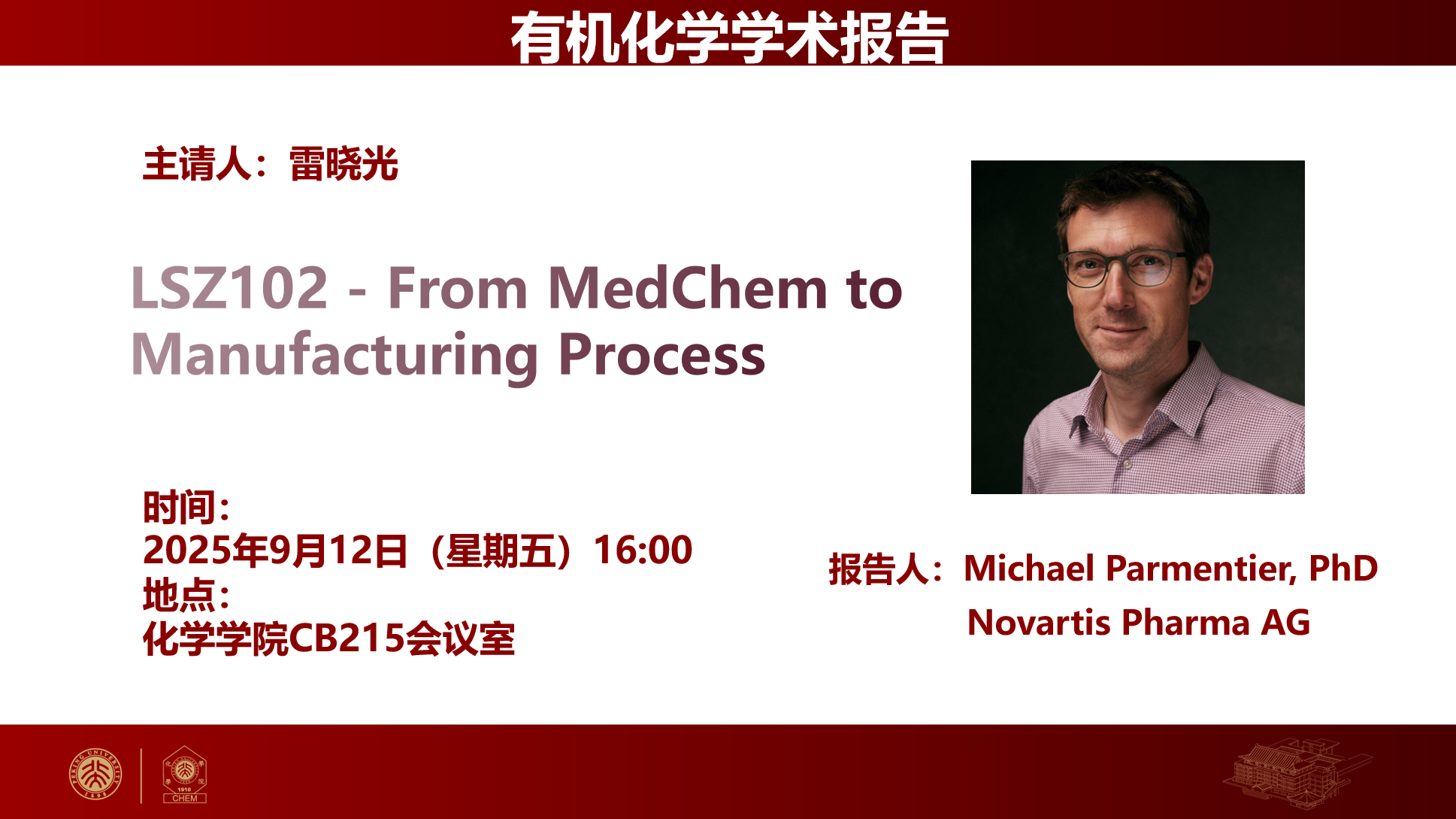
Abstract
The process development for the selective estrogen receptor degrader (SERD) candidate LSZ102 is outlined, emphasizing the transition from medicinal chemistry synthesis to large-scale production. The synthesis was significantly enhanced by revising the initial disconnection strategy, which led to improvements in overall yield, the elimination of chromatographic purifications, and a reduction in the number of steps. Additionally, an alternative micellar chemistry process for the crucial CH functionalization step is introduced, which notably decreases a critical impurity level. Special consideration was given to the scalability of reaction conditions, environmental impact, and safety.
References:
Baenziger, M.; Baierl, M.; Devanathan, K.; Eswaran, S.; Fu, P.; Gschwend, B.; Haller, M.; Kasinathan, G.; Kovacic, N.; Langlois, A.; Li, Y.; Schuerch, F.; Shen, X.; Wan, Y.; Wickendick, R.; Xie, S.; Zhang, K. “Synthesis Development of the Selective Estrogen Receptor Degrader (SERD) LSZ102 from a Suzuki coupling to a C-H activation strategy” Org. Process Res. Dev. 2020, 24, 1405-1419.
Parmentier, M.; Wagner, M.; Wickendick, R.; Baenziger, M.; Langlois, A.; Gallou, F. “A General Kilogram Scale Protocol for Suzuki–Miyaura Cross-Coupling in Water with TPGS-750-M Surfactant” Org. Process Res. Dev. 2020, 8, 1536-1542.
Biography
Michael Parmentier graduated from the University of Nancy (France) with a Masters degree in Chemistry. In 2004, he started his PhD-studies at the University of Montreal (Canada) in the laboratory of Prof. Hélène Lebel. There, he completed the total synthesis of an Interleukine inhibitor and developed metal-catalyzed aziridination reactions using nitrenes. In 2009, He moved back to Europe and joined the group of Prof. Andreas Pfaltz at the University of Basel as post-doctoral fellow working on C-H activation reactions applied to Hydrogen Isotope Exchange reaction in close collaboration with Hoffman-La-Roche laboratories. Since 2012 he is Process chemist in Novartis (Basel) in Chemical and Analytical development (CHAD). He is mainly involved in early phase projects including transfer to pilot plant and in implementation of new technologies working with various modalities (e.g. small molecules, peptides, oligo). He is leading the chemistry effort within his department and manage exchanges with academia.
He recently get honored by the “Novartis Leading Scientist Award” and the “Industrial Prize Yves Chauvin” from the Organic Chemistry Division from the French Chemical Society. He is distinguished fellow of the French Chemical Society.
He authored more than 30 articles published in peer-reviewed journals and 5 published patents.